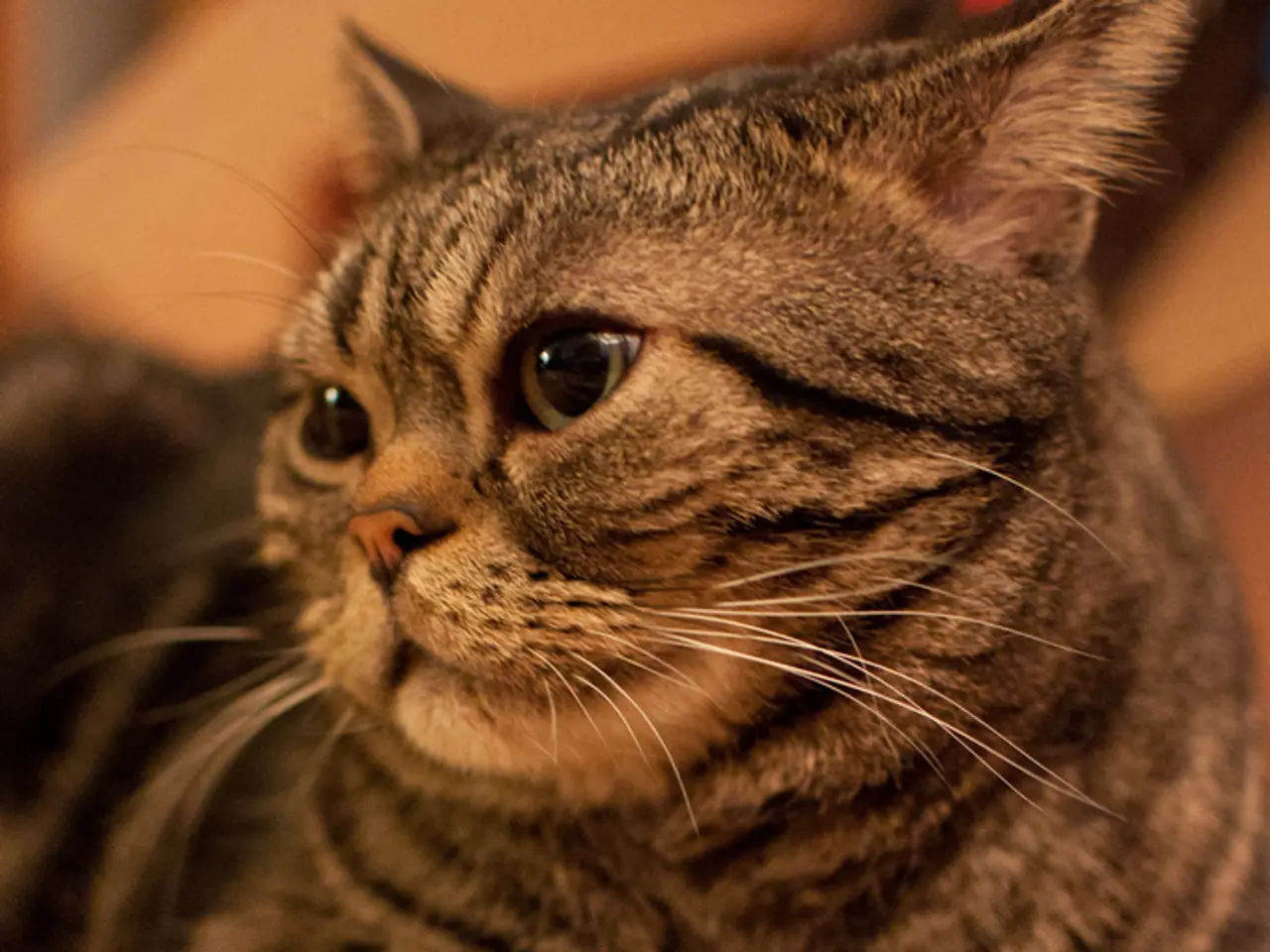Understanding Feline Urinary Issues: A Deep Dive
Cats, being creatures of habit, often express their discomfort or distress through changes in their bathroom habits. One common concern for cat owners is when their feline friend starts peeing outside the litter box. This issue may stem from medical, behavioral, or environmental factors.
**Medical Issues**
The most common cause for a cat to avoid its litter box is a health problem affecting the urinary tract or overall well-being. Conditions such as urinary tract infections (UTIs), feline lower urinary tract disease (FLUTD), kidney disease, bladder stones, diabetes, hyperthyroidism, arthritis, or mobility problems can all lead to changes in urination patterns.
**Behavioral Causes**
Cats may associate the litter box with pain if urinating there is uncomfortable, leading them to avoid it. This association can be strengthened if the cat experiences discomfort due to medical issues like UTIs or FLUTD.
**Environmental Factors**
Cats are sensitive to changes and may dislike the type of litter, the box’s cleanliness, location, or design. A covered litter box, scented litter, or a box placed near loud appliances can be a turn-off for cats. In multi-cat households, each cat should feel safe and have access to their own space and litter box.
**Symptoms to Watch For**
Signs that your cat may be experiencing issues include straining or frequent attempts to urinate with little output, blood in the urine, vocalizing or signs of pain while urinating, increased urination or urgency, avoidance of the litter box, changes in appetite, activity levels, or signs of discomfort.
**Solutions**
A veterinary evaluation is always the first step to rule out or treat medical issues through urine and blood tests. Treatment for UTIs, FLUTD, kidney disease, diabetes, or arthritis, as advised by the vet, can help resolve the issue. Improving litter box conditions, such as keeping the box clean, trying different litter types, and ensuring the box is accessible, especially for older or arthritic cats, can also help. Reducing stress by maintaining a consistent, quiet, and familiar environment is also beneficial.
In conclusion, peeing outside the litter box often signals an underlying medical or environmental issue and requires prompt veterinary assessment to diagnose and treat the cause effectively. Separation anxiety or environmental factors like loud noises or unfamiliar scents can contribute to inappropriate urination. Always consult a vet if you notice any changes in your cat's bathroom habits, and remember, early detection and treatment can make a significant difference in your cat's health and well-being.
[1] Urinary tract infections in cats: Causes, symptoms, and treatments. (2021). PetMD. [online] Available at: https://www.petmd.com/cat/conditions/urinary/c_multi_urinary_tract_infection_uti_in_cats
[2] Feline lower urinary tract disease (FLUTD). (2021). VCA Hospitals. [online] Available at: https://vcahospitals.com/know-your-pet/feline-lower-urinary-tract-disease-flutd
[3] Urinary issues in cats. (2021). Cornell Feline Health Center. [online] Available at: https://www.vet.cornell.edu/departments-centers-and-institutes/cornell-feline-health-center/health-information/feline-health-topics/urinary-issues-in-cats
[4] Bladder stones in cats. (2021). BluePearl Specialty + Emergency Pet Hospital. [online] Available at: https://www.bluepearlvet.com/pet-health-library/bladder-stones-in-cats
[5] Litter box problems in cats. (2021). ASPCA. [online] Available at: https://www.aspca.org/pet-care/cat-care/common-cat-behavior-issues/litter-box-problems-in-cats
- In the realm of health-and-wellness, maintaining a clean and comfortable litter box environment is crucial for indoor pets like cats, as they might avoid using it if the litter type, box cleanliness, location, or design isn't satisfactory.
- Technology can play a part in our lifestyle choices, such as monitoring our pets' health, with apps that alert us to inconsistencies in their bathroom habits or remind us to refill their litter boxes regularly.
- Environmental factors, such as loud noises or unfamiliar scents, can cause stress in cats and potentially lead to inappropriate urination. Ensuring a calm and consistent living space could support our pets' well-being.
- Science has identified various medical conditions that might affect a cat's urinary system, including urinary tract infections, feline lower urinary tract disease, kidney disease, bladder stones, diabetes, hyperthyroidism, arthritis, or mobility problems—early detection and treatment can significantly improve their health and lifestyle.




